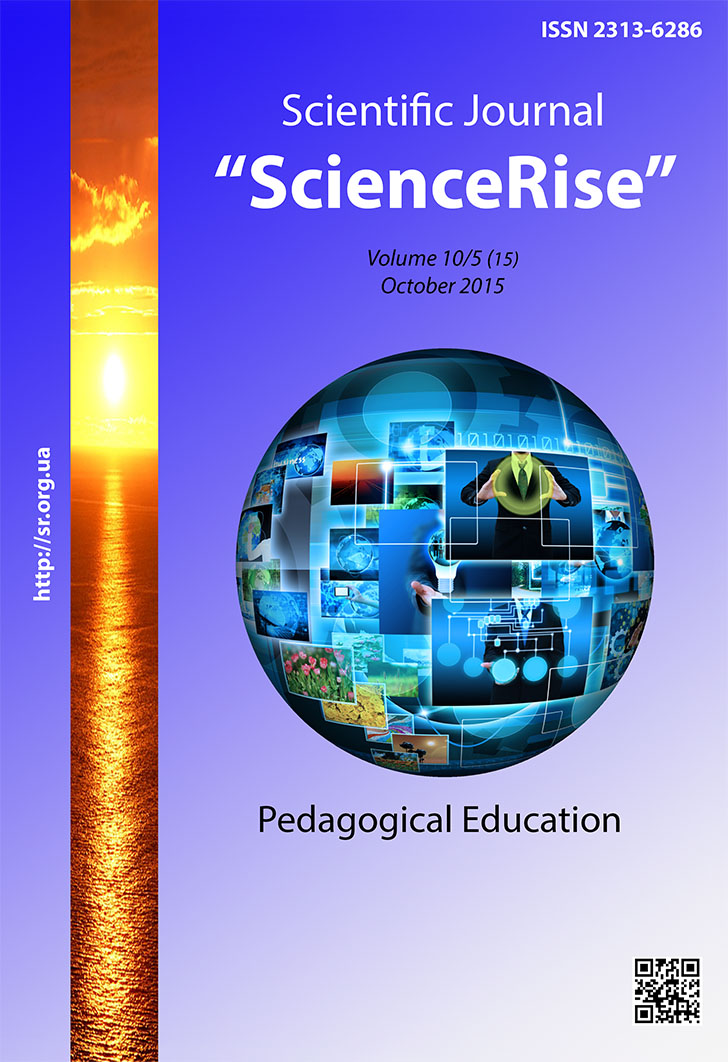Environmental determinants of cognitive development of students in the cultural creative environment of the university
DOI:
https://doi.org/10.15587/2313-8416.2015.51926Keywords:
environmental determinants, cognitive development, environmental approach, environment pedagogics, cultural creative environmentAbstract
There are analyzed environmental determinants of cognitive development of students in the cultural creative environment of the university determining the content of cognitive, creative abilities of future professionals, mental reconstruction of socio-cultural nature of the students. It is defined an essence of the environmental approach to mastery of cognitive styles and intellectual culture are defined. It is outlined the specifics of the intellectual and creative activity of students, providing a manifestation of their creative potential
References
Shackij, S. T. (1980). Izbrannye pedagogicheskie sochineniya. Moscow: Pedagogika, 720.
Makarenko, A. S. (1988). Sochineniya. Moscow: Pedagogika, 311.
Piazhe, Z.; Gal'perin, Y, Zhdan, A. (Eds.) (1992). Teoriya stadij. Istoriya zarubezhnoj psihologii. 30-e – 60-e gody XX veka. Moscow: Izd-vo Mosk. un-ta, 232–292.
Semina L. V. Diagnosticheskij i motivacionnyj ehtapy formirovaniya kognitivnoj samostoyatel'nosti v processe obucheniya bakalavrov. «Innovacionnye napravleniya v pedagogicheskom obrazovanii» s mezhdunarodnym uchastiem. Available at: http://econf.rae.ru/article/5141
Adler, A.; Judina, A. A. (Ed.) (1997). Nauka zhit'. Kyiv: Port-Royall, 287.
Perkins, D. N. (1988). Tvorcheskaya odarennost' kak psihologicheskoe ponyatie. Naukovedenie, 4, 88–92.
Downloads
Published
Issue
Section
License
Copyright (c) 2015 Лариса Леонідівна Ордіна

This work is licensed under a Creative Commons Attribution 4.0 International License.
Our journal abides by the Creative Commons CC BY copyright rights and permissions for open access journals.
Authors, who are published in this journal, agree to the following conditions:
1. The authors reserve the right to authorship of the work and pass the first publication right of this work to the journal under the terms of a Creative Commons CC BY, which allows others to freely distribute the published research with the obligatory reference to the authors of the original work and the first publication of the work in this journal.
2. The authors have the right to conclude separate supplement agreements that relate to non-exclusive work distribution in the form in which it has been published by the journal (for example, to upload the work to the online storage of the journal or publish it as part of a monograph), provided that the reference to the first publication of the work in this journal is included.

